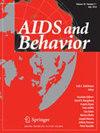辩证行为疗法(DBT)知情的移动健康干预提高中国与艾滋病毒感染者发生性行为的男性的应对技能和心理健康:一项混合方法可行性试点研究
摘要
在中国,男男性行为者(MSM)承受着不成比例的艾滋病毒和精神健康问题负担,阻碍了艾滋病毒相关护理的参与和药物依从性。我们开发了一种文化定制的辩证行为疗法(DBT)通知移动健康干预,包括通过移动应用程序进行个人技能培训,在线技能小组和按需技能指导。可行性研究的主要目的是评估干预的可接受性、可行性和应用程序的可用性。第二个目的是探索初步干预效果。参与者是与上海中国性工作者和男男性行为中心(SCMC)合作招募的,SCMC是一个在中国上海提供艾滋病相关服务的社区组织。符合条件的参与者被随机分配到为期4周的移动健康干预组或对照组(照常治疗)。干预措施包括使用应用程序进行个人技能学习,由训练有素的SCMC工作人员提供在线技能小组指导,以及由训练有素的SCMC工作人员提供按需技能指导。两组均完成为期4周的每周调查。采用线性混合效应模型对定量数据进行分析,以评估干预对主要结局(抑郁、焦虑、生活质量、药物依从性)和中间结局(情绪调节困难、艾滋病相关污名和应对自我效能)的影响。采用内容分析法分析干预可行性、可接受性、应用可用性的定量和定性数据,辅以描述性统计总结的定量数据。在完成筛选调查的64人中,有31人参加并完成了研究,没有退出。干预组(n = 16)和对照组(n = 14)在人口统计学特征、主要结局或基线中期结局方面没有差异。大多数参与者年龄在23-30岁之间,受过大学教育,有工作,单身。总的来说,干预措施被认为是高度可行和可接受的,应用程序的可用性高于平均水平。与对照组相比,时间与干预组以下结果的显著降低相关:抑郁(β = - 0.73, 95% CI[-1.37, - 0.10]),情绪调节困难(β = - 1.56, 95% CI[-2.72, - 0.41]),特别是不接受情绪(β = - 0.48, 95% CI[- 0.88, - 0.09]),以及情绪对目标的影响(β = - 0.37, 95% CI[- 0.72, - 0.03])。干预组在艾滋病控制(β = 0.37, 95% CI[0.01, 0.74])、生活满意度(β = 0.85, 95% CI[0.11, 1.59])、情绪应对效能(β = 0.97, 95% CI[0.06, 1.88])、寻求家人和朋友的社会支持(β = 0.82, 95% CI[0.08, 1.57])方面也比对照组有更大的改善。在中国,基于dbt的移动健康干预在感染艾滋病毒的男男性行为者中是可接受和可行的。干预显示出减少抑郁和情绪调节困难的希望,值得通过明确的试验进行进一步的调查。这项工作对跨文化适应和将传统循证治疗扩展到数字心理健康干预措施以改善艾滋病毒感染者的心理健康结果具有重要意义。Men who have sex with men (MSM) bear a disproportionate burden of HIV and mental health problems in China, hindering HIV-related care engagement and medication adherence. We developed a culturally-tailored dialectical behavior therapy (DBT)-informed mHealth intervention composed of individual skills training through a mobile app, online skills group, and on-demand skills coaching. The primary objective of this feasibility study was to assess the intervention acceptability, feasibility, and app usability. The secondary aim is to explore preliminary intervention effects. Participants were recruited in collaboration with Shanghai China Sex Worker & Men Who Have Sex with Men Center (SCMC), a community-based organization that provides HIV-related services in Shanghai, China. Eligible participants were randomly assigned to a 4-week mHealth intervention or control arm (treatment as usual). The intervention included individual skills learning using an app, online skills group facilitated by trained SCMC staff, and on-demand skills coaching by trained SCMC staff. Both groups completed weekly surveys for 4 weeks. Quantitative data were analyzed using linear mixed-effects models to evaluate the intervention's impact on primary outcomes (depression, anxiety, quality of life, medication adherence) and intermediate outcomes (emotion regulation difficulties, HIV-related stigma, and coping self-efficacy). Quantitative and qualitative data on intervention feasibility, acceptability, and app usability were analyzed using content analysis and supplemented with quantitative data summarized with descriptive statistics. Of the 64 people who completed the screening survey, 31 enrolled and completed the study without dropping out. The intervention (n = 16) and control arm (n = 14) did not differ in demographic characteristics, primary outcomes, or intermediate outcomes at baseline. Most participants were 23-30 years old, college-educated, employed, and single. Overall, the intervention was perceived to be highly feasible and acceptable, with above-average app usability. Compared to the control group, time was significantly associated with a greater decrease in the following outcomes in the intervention group: depression (β = - 0.73, 95% CI [-1.37, - 0.10]), emotion regulation difficulties (β = - 1.56, 95% CI [-2.72, - 0.41]), specifically non-acceptance of emotions (β = - 0.48, 95% CI [- 0.88, - 0.09]), and impact of emotions on goals (β = - 0.37, 95% CI [- 0.72, - 0.03]). Participants in the intervention group also showed more improvement in HIV mastery (β = 0.37, 95% CI [0.01, 0.74]), life satisfaction (β = 0.85, 95% CI [0.11, 1.59], coping efficacy around emotions (β = 0.97, 95% CI [0.06, 1.88]), and seeking social support from family and friend (β = 0.82, 95% CI [0.08, 1.57], compared with the control group. The DBT-informed mHealth intervention is acceptable and feasible among MSM living with HIV in China. The intervention shows promise in reducing depression and emotional regulation difficulties and warrant further investigation through definitive trials. This work has important implications for cross-cultural adaptations and extensions of traditional evidence-based treatment into digital mental health interventions to improve mental health outcomes among people living with HIV.

 求助内容:
求助内容: 应助结果提醒方式:
应助结果提醒方式:


